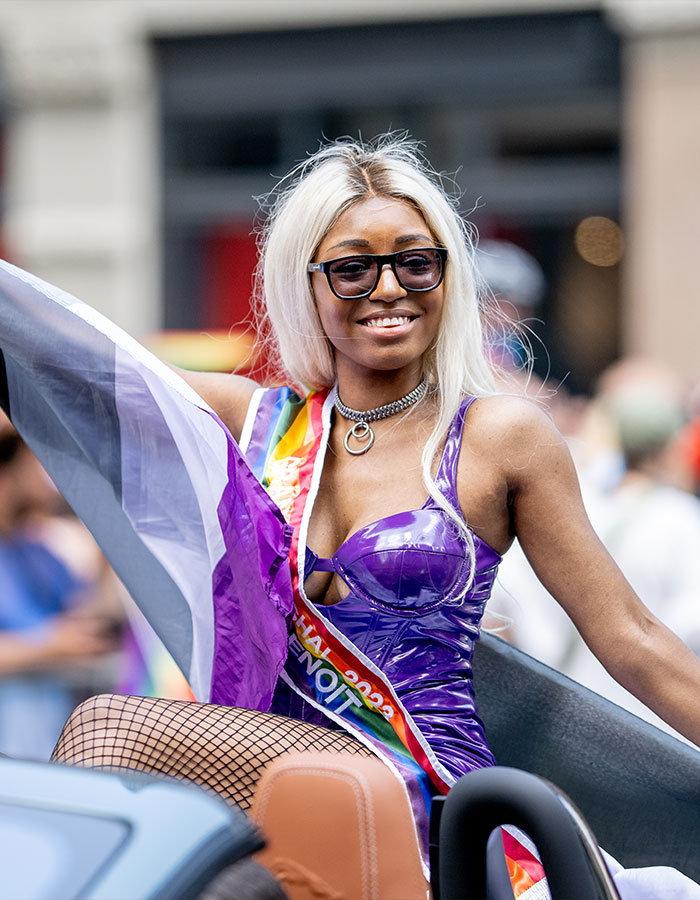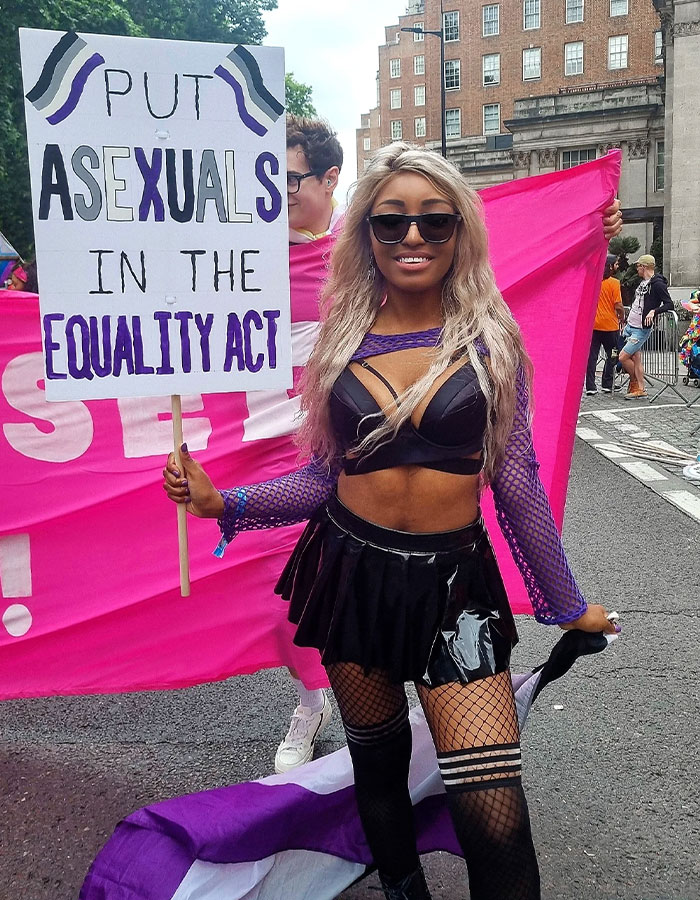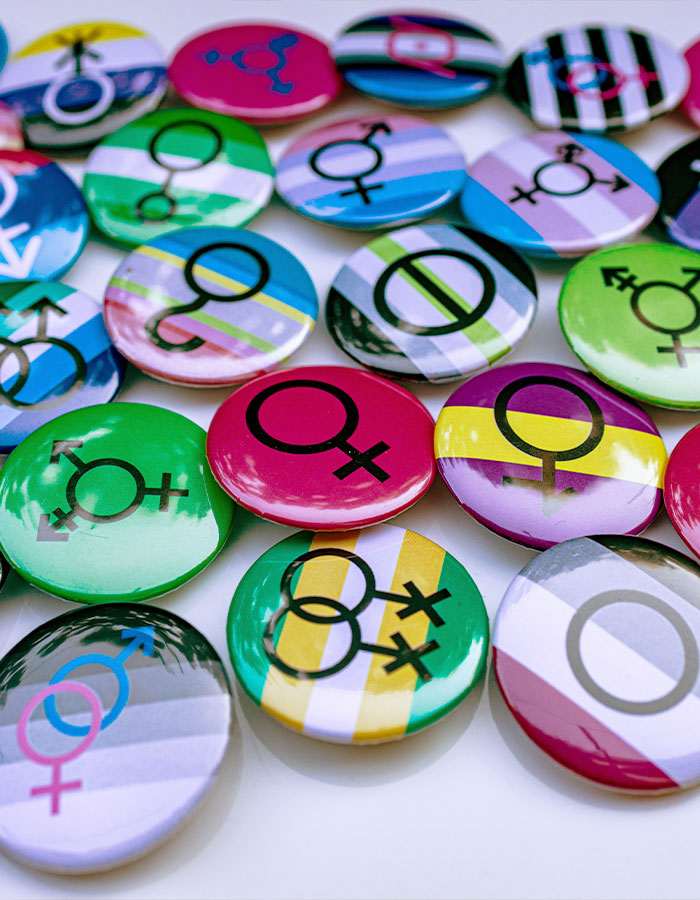A growing number of young people are identifying as “greys*xual,” which means they only experience attraction occasionally, rarely, or in specific situations.
The label has gained traction on TikTok, Reddit, and YouTube, offering many a way to describe feelings they once struggled to explain.
While some see it as empowering, others worry it reflects a wider “s*x recession” and shifting attitudes toward intimacy in younger generations.
Greys*xuality is on a spectrum, and it can overlap with other identities

Image credits: Chiara Guercio/Unsplash
The term “greys*xual,” sometimes shortened to “grey-A,” describes the space between being fully as*xual and experiencing regular s*xual attraction.
First used in 2006 on the Asexual Visibility and Education Network, it describes the “grey area” between being completely as*xual and feeling s*xual attraction regularly, according to the Daily Mail.
Greys*xuality has become quite popular on social media platforms. A dedicated subreddit for the orientation has attracted over 8,300 members while being very active.

Image credits: Roy Rochlin/Getty
Greys*xual YouTuber and podcaster Mark (@notdefining) has called the orientation “immensely helpful.”
“It helps people to understand that I do experience s*xual attraction, I do have s*x, I do enjoy s*x and s*xual fantasies, but I may experience them to a significantly lower degree than most people,” he said.
Many in the community have stressed that greys*xuality exists on a spectrum. It can overlap with other identities such as demis*xuality, where attraction occurs only after forming a strong emotional bond.

Image credits: tulisacontostavlos
While many people on the greys*xual spectrum still experience s*xual feelings or m*sturbate for pleasure or stress relief, others may have little to no interest in s*xual activity.
While online platforms for the greys*xual community have generally garnered praise, they have also drawn criticism from netizens who argue that the spread of niche identity labels is counterproductive.
Experts have warned that millennials and Gen Z are entering a “s*x recession”

Image credits: notdefining
Researchers have noted that millennials and Gen Z are reporting fewer partners and less frequent intimacy compared to older generations at the same age.
This “s*x recession” isn’t simply about disinterest. Studies have pointed to anxiety, body image pressures, digital disconnection, and even political debates over sexual rights as contributing factors to young people’s low intimacy.
US writer Carter Sherman, author of The Second Coming, found that many young people felt a sense of “fear and shame” around s*x.

Image credits: theyasminbenoit
These are fueled by unrealistic body standards on social media platforms like Instagram, exposure to p*rnographic materials, and polarized conversations about s*xuality.
Some critics have argued that creating new labels like “greys*xual” risks overcomplicating how people think about attraction and relationships.
Others have argued for the opposite, stating that having the right words and labels ultimately helps people understand themselves and find supportive communities.
Doctors and netizens weighed in on the emergence of greys*xuality and other orientations
Doctors have emphasized that there is a difference between being greys*xual, where low or no sexual attraction is a consistent part of someone’s identity, and experiencing a sudden drop in libido.
Drops in libido could signal stress, depression, or underlying health issues. The NHS has even noted that loss of sex drive can be linked to heart disease, diabetes, thyroid problems, menopause, and even certain medications.
Netizens, for their part, seem to be quite split about the emergence of new orientations such as greys*xuality, with critics stating that the intense focus on attraction is unnecessary.

Image credits: Marek Studzinski/Unsplash
“I only think about s*x occasionally. Other times, I had to look after children, work, sleep, cook, enjoy hobbies etc.. All this time, I just thought I was having a LIFE!” one commenter wrote.
“Why do some people need to make up words, to label themselves to feel. It’s getting silly,” wrote another.
“I’m sure they are only coming up with these ridiculous terms in order to feel special. They are like vegans…can’t help themselves but to bleat their personal preferences to the world whether or not the world wants to hear it,” another commenter stated.
Others, however, have fully supported the emergence of “greys*xuality.”

Image credits: Freepik
“I’m just happy that vocabulary exists for all of us in a world where either it’s a punchline or a way to erase people in the name of ‘not labelling,'” one commenter wrote.
“31 and I honestly haven’t been able to identify so much with a label as I’m able to with this one,” another wrote.
“I’m well into my 50s, and realized I’ve been gray-ace my whole adult life,” wrote another commenter.
Netizens shared their thoughts on greys*xuality on social media















 Follow Us
Follow Us





